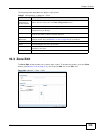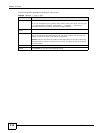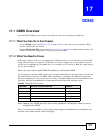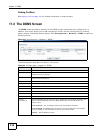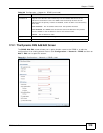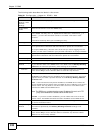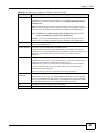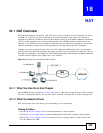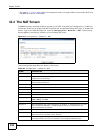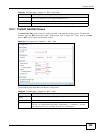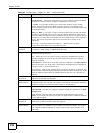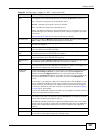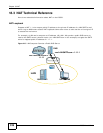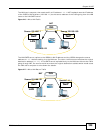
ISG50 User’s Guide 323
CHAPTER 18
NAT
18.1 NAT Overview
NAT (Network Address Translation - NAT, RFC 1631) is the translation of the IP address of a host in
a packet. For example, the source address of an outgoing packet, used within one network is
changed to a different IP address known within another network. Use Network Address Translation
(NAT) to make computers on a private network behind the ISG50 available outside the private
network. If the ISG50 has only one public IP address, you can make the computers in the private
network available by using ports to forward packets to the appropriate private IP address.
Suppose you want to assign ports 21-25 to one FTP, Telnet and SMTP server (A in the example),
port 80 to another (B in the example) and assign a default server IP address of 192.168.1.35 to a
third (C in the example). You assign the LAN IP addresses and the ISP assigns the WAN IP address.
The NAT network appears as a single host on the Internet.
Figure 212 Multiple Servers Behind NAT Example
18.1.1 What You Can Do in this Chapter
Use the NAT screens (see Section 18.2 on page 324) to view and manage the list of NAT rules and
see their configuration details. You can also create new NAT rules and edit or delete existing ones.
18.1.2 What You Need to Know
NAT is also known as virtual server, port forwarding, or port translation.
Finding Out More
•See Section 6.6.9 on page 100 for related information on these screens.
•See Section 18.3 on page 328 for technical background information related to these screens.
•See Section 7.9.2 on page 126 for an example of how to configure NAT to allow H.323 traffic
from the WAN to the LAN.
ISG



